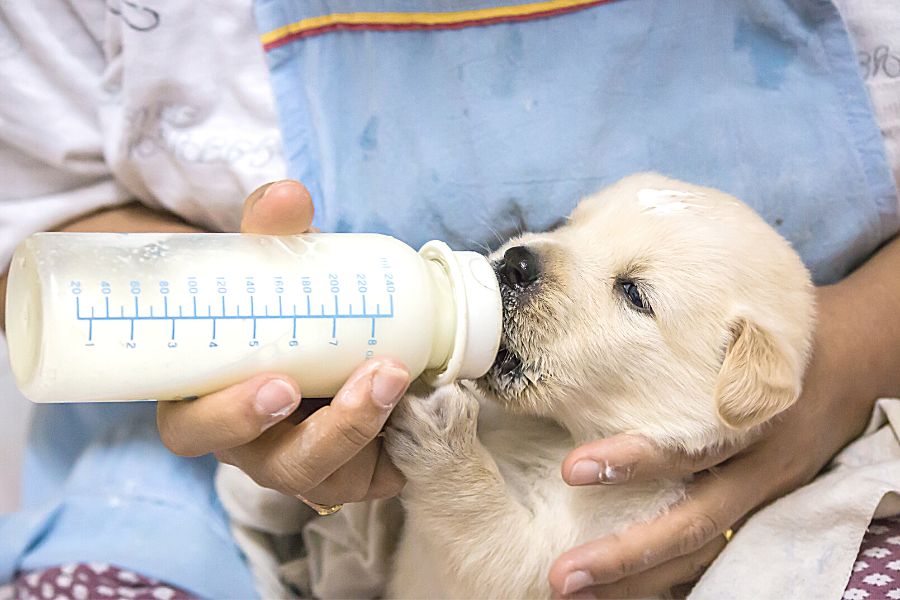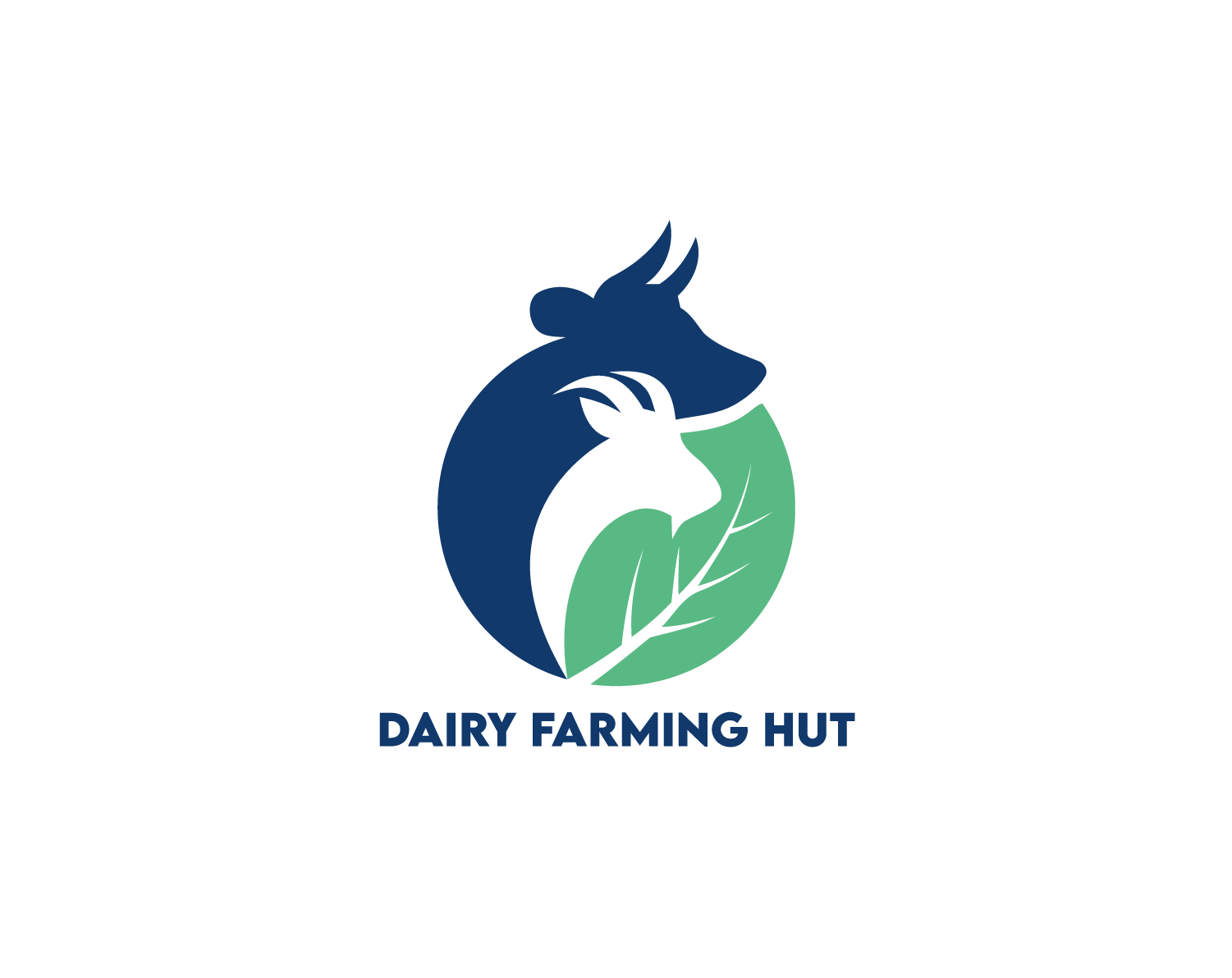Dog ownership is fraught with many differing views on almost every aspect, including nutrition. There has been widespread information on the dangers of cow milk for dogs, some scientific and other 'facts' based on hearsay, and popular science myths. Many people promote the use of goat's milk for puppies, but is this a good idea?
Goat milk may benefit puppies as it contains many minerals. It can be used as a topper on food to improve palatability. The composition of goat milk is inadequate for use as a puppy milk substitute and may lead to nutritional imbalances. Raw goat milk may cause gastrointestinal issues.
It is important to have scientific data when considering what is good for your dog. This is especially critical when dealing with a vulnerable puppy.
Is Goat Milk Good For Puppies?

Goat milk contains many minerals which benefit puppies. These include
- Magnesium
- Manganese
- Copper
- Cobalt
- Iodine
- Ferritin
- Molybdenum
- Phosphorous
- Potassium
- Sodium
- Zinc
- Nitrogen
- Selenium
- Calcium
Goat's milk also contains short-chain fatty acids, which are easy to digest due to their small molecule size. The following vitamins may be found in goat's milk:
- Vitamin A
- Vitamin D
- Vitamin C
- Many B vitamins
- Folic acid
- Biotin
Goat milk can provide a good source of nutrients to boost the vitamins and minerals available for puppies. In addition, goat milk can be added as a topper to increase the palatability of the puppy's food while functioning as a dietary supplement.
Does Goat Milk Have Medicinal Benefits?
Goat milk has high levels of milk oligosaccharides which function as a prebiotic, improving gut health. Milk oligosaccharides promote the development of beneficial gut bacteria, which protect the animal from infections and harmful bacteria.
Milk oligosaccharides can contribute to the healing of the gastrointestinal lining in sick animals. They may also promote the development of immune modulators, strengthening the immune system.
Studies have shown that milk oligosaccharides have anti-inflammatory properties that can reduce gut inflammation in animals with conditions such as inflammatory bowel disease or enterocolitis.
Canine parvovirus is a deadly disease that kills many unvaccinated puppies annually in every country. Some veterinarians suggest feeding goat milk to puppies infected with parvovirus may assist in fighting this disease and restore the gastrointestinal lining. At the same time, stimulating the immune system may help the puppy's body fight the virus.
There have been no formalized studies on using goat milk to treat parvovirus. The recommendation to use goat milk for parvovirus is based on theories and anecdotal evidence.
Other serious gastrointestinal infections may also benefit from goat milk as part of the treatment plan.
Can Goat Milk Be Used As A Canine Milk Replacer?
A milk replacer is needed to feed orphaned puppies or if the mother has too little milk. It is essential to consider the composition of the milk replacer compared to natural canine milk. Different dog breeds have milk that varies in composition.
Content | Goat Milk | Dog Milk |
|---|---|---|
Moisture | 87.62 | 64.97 – 79.41 |
Dry Matter | 12.38 | 20.59 – 35.03 |
Protein | 3.09 | 6.62 – 17.34 |
Fat | 4.45 | 8.92 – 14.31 |
Ash | 0.88 | 1.11 – 1.81 |
Lactose | 3.95 | 1.56 – 3.92 |
The above figures on dog milk composition were for four dog breeds, Golden Retriever, Labrador, Caucasian Shepherd, and Rottweiler.
When comparing goat milk and canine milk, it must be noted that there are marked differences in the basic nutrients. Goat milk has markedly less dry matter, protein, fat, and ash than canine milk. Goat milk has more lactose than some dog breeds but is equivalent to others.
Goat milk will, therefore, not be an adequate replacement for canine milk. Puppies brought up on goat milk exclusively would be underweight and have nutritional deficiencies. They may even struggle to survive.
It is better to use a commercial puppy milk formula to raise orphaned puppies or a litter in need of supplementation. Some canine milk replacers are made using goat milk. Examples are PetAG Esbilac Liquid Milk Supplement and Thomas Labs Goatalac Goat Milk Replacer for Puppies and Kittens.
Can Adult Dogs Have Goat Milk?
As dogs mature into adults, some may become lactose intolerant as they lose their ability to produce lactase. Lactase is the enzyme responsible for digesting lactose, which is found in milk. Undigested milk produces gas, causes the stomach to become inflamed, and leads to stomach upsets.
If a dog develops diarrhea, stomach cramps, or vomits after having goats' milk, it should be assumed that it cannot digest lactose. The dog should not have any more access to goat milk.
Some adult dogs can digest goat milk and may benefit from having goat milk added to their food. It is best to moderate the quantities as excesses may cause stomach issues or lead to obesity.
- CAT OR DOG FOOD TOPPER: Nourishing cat and dog milk replacement that is easily digestible even for cats and dogs with sensitive stomachs. Make bland dog food or bland cat food appetizing by simply adding the suggested amount of nutrient rich raw goat milk. Safe, easy and loved by dogs and cats!
- NUTRITIOUS GOAT MILK SUPPLEMENT: Over 200 species of naturally occurring dog probiotics and cat probiotics! These probiotics or “good” bacteria help to prevent messy issues such as colitis, diarrhea, and IBS. Also great for cat and dog allergy itching, pet joint support, and immune system support.
- ALL-NATURAL PET MILK REPLACER: Wholesome raw goat’s milk produced without by-products, additives or preservatives. A kitten and puppy milk that is 100% safe and full of nutrition. Goat’s milk for dogs and cats is healthy and takes 20 minutes on average to fully digest. Easier to digest than cow's milk!
- MADE IN THE USA: Our raw goat’s milk for pets is unpasteurized, sourced from healthy, grass-fed goats raised without the use of antibiotics or added hormones on US family farms. High in vitamins, minerals, electrolytes, trace elements, enzymes, easy to digest proteins and fatty acids, which all benefit overall pet health!
- WE VALUE YOU: We stand behind our brand and strive to ensure that you and your pet are truly happy. Meeting your expectations is our top priority at Raw Paws Pet, Inc.
When Should Dogs Not Have Goat Milk?
Obese dogs on a weight loss diet should not have goat milk as this will defeat the purpose of a calorie-restricted diet.
Dogs with pancreatitis struggle to digest fats. Ingesting fats trigger pancreatitis attacks, resulting in nausea, vomiting, abdominal pain, fever, diarrhea, and refusal to eat. Therefore, these dogs must not be given goat milk.
Can Feeding Goat Milk To Puppies Cause Illness?
Goat milk is usually fed raw. While there may be significant health benefits, there can also be some health issues caused by feeding raw goat milk. If the milk is not handled correctly or the goats carry diseases, the puppies will be exposed to serious pathogens that can cause diseases.
Puppies do not have a well-developed immune system. As a result, puppies fed contaminated goat milk may have difficulty overcoming the pathogens, leading to serious disease and even death.
Conclusion
Goat milk benefits puppies as it adds vitamins and minerals to the diet. It cannot function as a milk replacer as it has insufficient nutrients. Care must be taken to ensure the goat milk is not contaminated, as this would be detrimental to puppies.
This is not a Veterinarian Advice
The Ideas and Strategies presented on this website and the information are based on our research and experience. These strategies are not intended to be a substitute for professional medical advice, diagnosis, or treatment. The information and/or documents contained on this website do not constitute veterinarian or medical advice. You should not disregard, or delay in obtaining, medical advice for any medical condition your livestock or pets may have.
Sources:
(PDF) Goat Milk: Composition, Characteristics. Encyclopedia of Animal Science.
Canine Diarrhea - Why It Happens and How You Can Avoid It | Dr. Loudon
Nutritional Benefits of Goats' Milk. Major Components and Medicinal Value - GRIN
Zhang, M.; Sun, X.; Cheng, J.; Guo, M. Analysis and Comparison of Nutrition Profiles of Canine Milk with Bovine and Caprine Milk. Foods 2022,11,472. https://doi.org/ 10.3390/foods11030472

